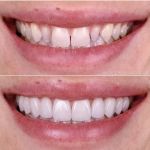
- Understanding the impact of chemotherapy on oral health
- Common dental issues during chemotherapy
- Why dental care is crucial for cancer patients
- Essential dental care tips during chemotherapy
- Managing mouth sores and dryness
- Safe dental products and daily habits
- Real patient story – how one survivor managed oral health during treatment
- Professional support from Family Dentistry Online
Understanding the impact of chemotherapy on oral health
Chemotherapy is one of the most powerful tools in the fight against cancer, but it also affects rapidly dividing cells in the mouth. The delicate tissues lining the gums, tongue, and cheeks become vulnerable to inflammation, dryness, and infection. For many patients, oral discomfort becomes a daily challenge. Understanding these effects is the first step in learning how to maintain good dental care during treatment.
Because chemotherapy weakens the immune system, even minor gum irritation can lead to infections that complicate recovery. That’s why implementing proper dental care tips during chemotherapy isn’t just about comfort—it’s an important part of overall cancer care.
Common dental issues during chemotherapy
1. Mucositis (mouth sores): Painful ulcers or red patches that make eating and brushing difficult.
2. Dry mouth (xerostomia): Reduced saliva flow due to damaged salivary glands, increasing the risk of cavities and bad breath.
3. Gum inflammation and bleeding: Weakened immunity can make gums swell or bleed easily.
4. Infections: Fungal or bacterial infections like oral thrush can develop quickly.
5. Changes in taste: Many patients report metallic or altered taste sensations caused by the treatment itself.
These issues can make daily hygiene routines feel uncomfortable, but they can be managed effectively with patience and professional guidance.
Why dental care is crucial for cancer patients
When undergoing chemotherapy, the mouth becomes a gateway for bacteria. Without proper care, small oral problems can escalate, affecting nutrition, sleep, and even treatment schedules. For example, untreated gum infections can cause delays in chemotherapy cycles due to the risk of systemic infection. Maintaining good oral hygiene helps reduce complications and ensures that patients can continue treatment with minimal discomfort.
At Family Dentistry Online, dental specialists often emphasize preventive care before and during cancer therapy. They provide tailored plans to minimize oral complications while supporting the body’s healing process.
Essential dental care tips during chemotherapy
1. Brush gently twice daily: Use a soft-bristled toothbrush and mild fluoride toothpaste. If brushing causes pain, soak the brush in warm water to soften the bristles further.
2. Floss with care: If your gums bleed or feel tender, ask your dentist whether to pause flossing until they heal.
3. Rinse regularly: Rinse your mouth with a salt-and-baking-soda solution several times daily to reduce bacteria and soothe irritation.
4. Avoid alcohol-based mouthwashes: These can worsen dryness and irritation.
5. Stay hydrated: Sip water frequently and use saliva substitutes if your mouth feels too dry.
6. Visit your dentist frequently: Professional cleanings and checkups during chemotherapy help prevent infections and monitor healing.
These dental care tips during chemotherapy not only protect oral health but also make daily life more comfortable for patients navigating treatment.
Managing mouth sores and dryness
Mouth sores are among the most painful side effects of chemotherapy. They often appear as red or ulcerated areas that make eating and speaking challenging. Applying mild oral gels or using prescribed rinses can ease pain and promote healing. Patients should avoid spicy, acidic, or hard foods that irritate sores. Instead, choose soft meals such as oatmeal, smoothies, or yogurt.
Dry mouth, another frequent issue, can lead to tooth decay and gum infections. Chewing sugar-free gum or lozenges stimulates saliva flow, while humidifiers can help moisten the air during sleep. For severe dryness, dentists may recommend saliva-enhancing rinses that keep the mouth comfortable and protected.
Safe dental products and daily habits
Choosing the right oral products during chemotherapy can make a huge difference. Fluoride toothpaste, alcohol-free mouth rinses, and gentle toothbrushes are ideal. Avoid whitening products or those with strong flavoring agents that can sting sensitive tissues. Dentists also recommend using water flossers for easier, less abrasive cleaning.
Another important habit is maintaining nutrition. A well-balanced diet rich in vitamins A, C, and E supports gum health and helps rebuild tissues damaged by treatment. Smooth, cool foods can soothe mouth irritation while providing essential nutrients for recovery.
Real patient story – how one survivor managed oral health during treatment
Maria, a 46-year-old breast cancer survivor, shared her experience managing oral health during chemotherapy. “The mouth sores were unbearable at first,” she recalled. “But my dentist helped me adjust my routine—using a saltwater rinse, a soft brush, and staying away from acidic foods.” Within a few weeks, her discomfort eased significantly. Maria’s story shows that consistent oral care, combined with professional advice, can transform the experience of chemotherapy recovery.
She continued her routine under the guidance of Family Dentistry Online, where personalized oral hygiene plans helped her maintain both comfort and confidence throughout treatment.
Professional support from Family Dentistry Online
Every cancer journey is unique, and so are the dental challenges that come with it. At Family Dentistry Online, patients can access compassionate, expert-driven dental care designed for individuals undergoing chemotherapy. From specialized mouth rinses to preventive cleanings and custom advice, their team ensures your oral health supports your overall healing. Visit Family Dentistry Online to discover personalized dental care options that keep your smile strong during treatment and beyond.







 Lourdes's Dentistry - Affordable Dentist4.0 (160 review)
Lourdes's Dentistry - Affordable Dentist4.0 (160 review) Silc Periodontics4.0 (169 review)
Silc Periodontics4.0 (169 review) Doc Bresler's Cavity Busters4.0 (363 review)
Doc Bresler's Cavity Busters4.0 (363 review) McCall Family Dentistry5.0 (718 review)
McCall Family Dentistry5.0 (718 review) Justin Ewell, DMD at Suncoast Dental Goodyear0.0 (0 review)
Justin Ewell, DMD at Suncoast Dental Goodyear0.0 (0 review) Harbor Point Dental at Pelham Manor4.0 (118 review)
Harbor Point Dental at Pelham Manor4.0 (118 review) The Importance of Oral Health Education During Pregnancy for a Healthy Pregnancy
The Importance of Oral Health Education During Pregnancy for a Healthy Pregnancy Best Tips for Brushing Your Teeth Properly for Healthy Gums: Essential Techniques for Oral Health
Best Tips for Brushing Your Teeth Properly for Healthy Gums: Essential Techniques for Oral Health Why Skipping Dental Checkups Can Lead to Bigger Oral Health Problems
Why Skipping Dental Checkups Can Lead to Bigger Oral Health Problems Advantages of Porcelain Dental Restorations
Advantages of Porcelain Dental Restorations How Can Diabetes Cause Tooth and Gum Problems? Preventing and Managing Oral Health Issues
How Can Diabetes Cause Tooth and Gum Problems? Preventing and Managing Oral Health Issues Healthy Habits for Promoting Good Oral Health and Hygiene: Tips for a Healthy Smile
Healthy Habits for Promoting Good Oral Health and Hygiene: Tips for a Healthy Smile